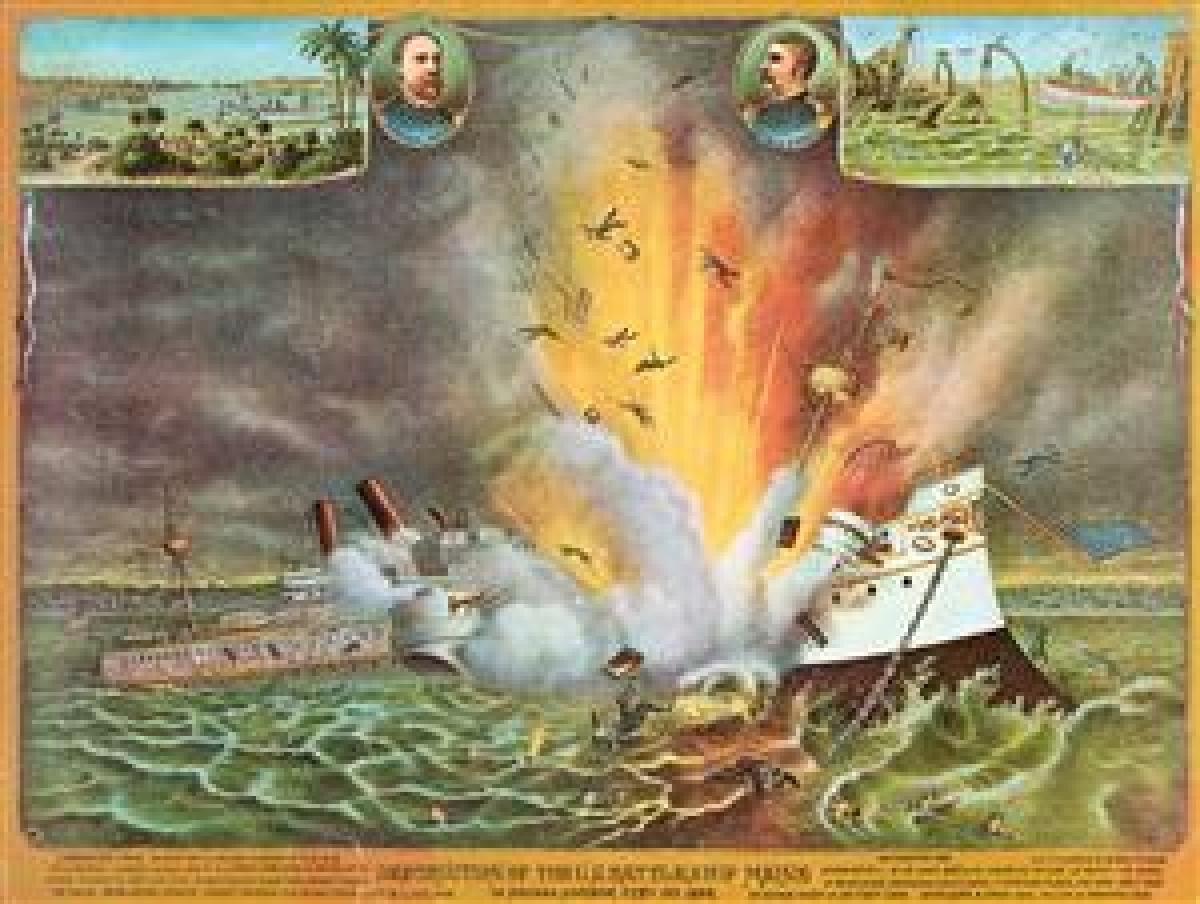Apprentice First Class Ambrose Ham was signal boy of the watch when the USS Maine arrived at the Spanish-owned island of Cuba on 25 January 1898. Tensions were high in the battleship as she slowly steamed into Havana Harbor, and though Ham remembered that "everything looked peaceful," he heard another Sailor tell two friends, "We'll never get out of here alive."
Cuban revolutionaries had long been trying to overthrow their Spanish masters, and the Maine had been sent to protect American citizens then in Havana.
Because of the high state of tension, the crew was not allowed to go ashore, and Ham noted that "time was beginning to drag." For more than two weeks, the 358-man crew went about their routines, aware of their part in a tense international situation, yet unable to do anything other than show their flag.
On the evening of 15 February, the boredom was about to end, but not in a way that Ham would have wanted. Just a little after 2130, he engaged another Sailor in conversation as a way of getting his mind off the creeping pace of time. When the talk had dwindled, Ham was about to turn in, but suddenly a great flame shot up, engulfing the forward part of the ship. A piece of flying debris struck Ham in the face, knocking him senseless.
In that instant, many of Ham's shipmates perished, as a huge explosion up forward on the port side ripped open the ship and curled her main deck back on itself. Debris rained down into the harbor for hundreds of yards around the stricken vessel.
Once he recovered his senses, Ham began helping others lower the captain's gig and noted with dismay how quickly the boat had reached the water, a clear indication that the Maine was sinking. Positioning himself in the boat's bow, Ham began pulling men from the water.
As the gig pulled up alongside the ship's stern, Ham saw the commanding officer, Captain Charles Sigsbee, standing on the poop deck, loudly declaring, "I won't leave until I'm sure everybody is off." The poop deck was the Maine's highest remaining deck, and it was now at the same level as the gig's gunwale. When Ham overheard the ship's executive officer whisper to Captain Sigsbee that the raging fire was very close to the forward magazine and that it might blow at any moment, the young Sailor felt a great urge to shout "Let's get out of here!" But he sat quietly in the bow, holding tightly to the bowline that tethered the small boat to the sinking, burning ship.
At last, Sigsbee was convinced that no one else remained on board, so he stepped into the gig and ordered the crew to shove off. Ham gratefully took in the bowline, aware that his hands ached from the tight grip he had used to hold it during those tense moments. Oars struck the water, and the gig moved across the harbor toward a nearby American merchant vessel as the Maine, burning furiously, slowly disappeared into Havana Harbor.
Ambrose Ham was one of the fortunate ones; 266 of his shipmates were lost in the great disaster. The cause of the explosion is still a subject of debate, but the incident was one of the factors leading to the Spanish-American War.



